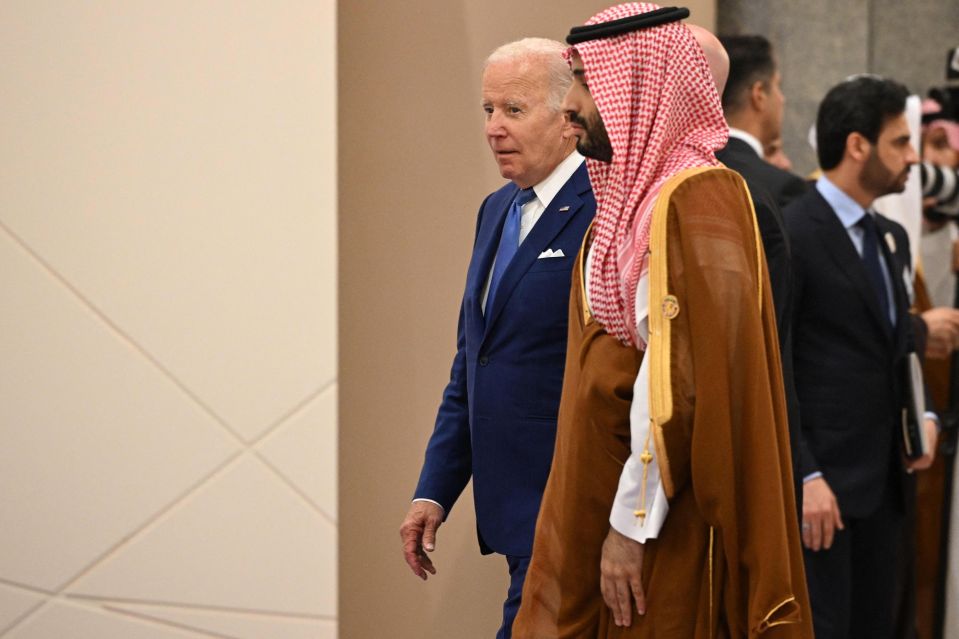The United States faces a dilemma over OPEC+’s decision to reduce oil production, which will have a serious impact on gasoline prices and other products in the midst of the Russia-Ukraine conflict; President Biden even expected a delay from Saudi Arabia, after agreements in July, but that kingdom ruled out stopping the plan
The kingdom of Saudi Arabia puts President Joe Biden in trouble, after not keeping the agreement they would have reached last July on oil production, after meetings with Prince Mohammed bin Salman.
The impact for the United States would come in two ways: the first directly into the pockets of consumers, since that could seriously increase the price of gasoline, and the second would be for the Democrats, since an increase in prices could mean a serious setback election on November 8.
The conflict is such that the Biden Administration will rethink its relationship with the Saudi kingdom, according to the president himself and confirmed by National Security Adviser Jake Sullivan.
Saudi Arabia has said it will join other OPEC+ partners, including Russia, in cutting oil output, drawing a first reaction from the president in an interview with CNN last Thursday.
“There are going to be some consequences for what they have done with Russia. I’m not going to go into [the details] of what I would consider and what I have in mind. But there will be, there will be consequences,” warned the president.
Meanwhile, the Saudi kingdom affirmed that the Biden Administration sought that the OPEC+ decision not be made before November 8, the date of the midterm elections, which could mean a victory for the Republicans.
“The kingdom emphasizes that while it strives to preserve the strength of its relations with all friendly countries, it affirms its rejection of any dictates, actions or efforts to distort its noble goals of protecting the global economy from oil market volatility.” Saudi Arabia said in a statement.
Impact on the price of gasoline
The OPEC+ announcement will mean a reduction of two million barrels of oil per day, that is, 2% of global production. When the announcement was made, oil prices began to rise around 20%, although it has achieved some stability, but the cut is not yet effective.
The price of gasoline in the US remains on the rise in 17 states, the most complicated being Arizona, California –where the government sends $1,000 dollars to consumers–, the state of Washington, Oregon, Idaho, Nevada and Utah.
Conflict in Ukraine
The Saudi kingdom also denied that its decision has any relation to the conflict in Ukraine, but for the US it is a clear support for Russia.
“Resolving economic challenges requires establishing a non-politicized constructive dialogue and considering wisely and rationally what serves the interests of all countries,” Saudi Arabia said.
Sullivan said on CNN last Sunday that the president was focused not just on the US, but on deals for his allies. It should be remembered that several NATO members are facing energy problems amid Russia’s invasion of Ukraine.
The White House adviser added that President Bien will not meet in November with Prince Bin Salman, within the framework of the G20, but that he will not make a hasty decision either.
“The president is not going to act rashly, he is going to act methodically, strategically,” Sullivan said. “And he will take time to consult with members of both parties, and he will also have the opportunity to bring Congress back so he can sit down with them in person.”
Senator Bob Menéndez (New Jersey), chairman of the Foreign Relations Committee, advanced his position on Saudi Arabia, urging the US government to stop agreements on arms sales, considering that the kingdom plays “on two sides.”
“The United States must immediately freeze all aspects of our cooperation with Saudi Arabia, including any arms sales and security cooperation,” Menendez said in a statement. “There is simply no room to play both sides of this conflict: either you support the rest of the free world in trying to stop a war criminal from violently wiping an entire country off the map, or you support him.”
Even independent senator Bernie Sanders (Vermont) joined the criticism against Saudi Arabia and recognized the effect on the US economy, so in an interview on MSNBC he urged action by withdrawing US troops and stopping the sale of weapons.

